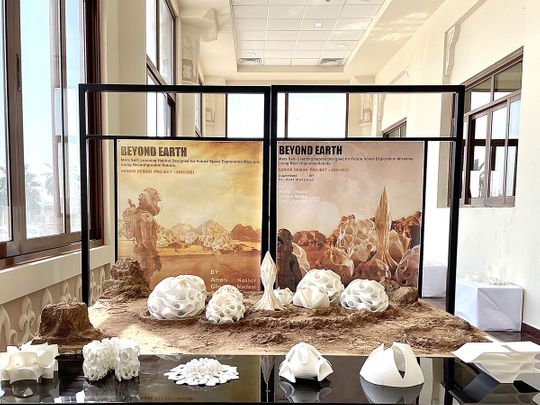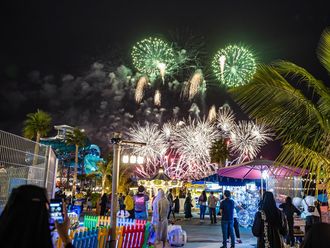
Sharjah: How will humans live on Mars? This question has been the subject of science fiction even before the 1900s, and of aerospace engineering and scientific proposals since the 1940s.
Nowadays, a human mission to Mars is no longer science fiction. Plans are underway to send the first humans to the Red Planet in the next few decades and the UAE, as one of top nine countries in the world that invest in the space sciences, aims to establish an inhabitable human settlement in Mars by 2117.
A human mission to Mars is also the subject of the graduation project by a group of female students from the Department of Architecture at University of Sharjah’s (UoS) College of Engineering.
The mission
Using reconfigurable robots, UoS students Zain Lahham, Amani Nasser and Ghosoun Madani demonstrated a “self-learning habitat designed for future human space exploration missions”.
The world is definitely years away from sending the first humans to Mars but what the study has achieved is that “it has shown the importance of digital future design and implementation, and support for the use of artificial computational intelligence in architecture and planning,” UoS said in a statement sent to Gulf News.
‘Beyond Earth’
The student project is called ‘Beyond Earth’ — a Mars self-learning habitat designed for future space exploration missions using reconfigurable robots. The research was supervised by Dr Aref Maksoud. “As a result of this research, an adaptive, self-learning system for building using reconfigurable robotic robots was designed as a future building tool that supports data analysis to solve problems related to construction and environmental conditions on Mars,” the university said in a statement.
“The students presented the project using digitally processed images and videos supported by virtual reality techniques to appear as real as they are on Mars. 3D-printed models were also used, in addition to stereoscopic visualisation (creating an illusion of three-dimensional depth),” UoS added.
Interest in project
UoS Chancellor Prof. Hamid M.K. Al Naimiy noted the Mohammed bin Rashid Space Centre (MBRSC) “has signified interest in the project and has put forward the possibility of cooperating with the students to realise their project”.






